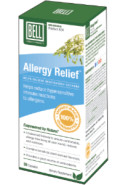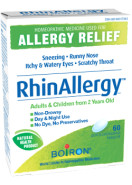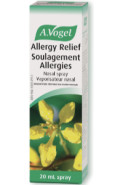Indoor Allergy Solutions
Indoor Allergies: Identifying Common Triggers and Exploring Quality Supplements
Many people suffer from indoor allergies. These are triggered by allergens commonly found in the home/workplace/hotel or other indoor locations and include mould, dust mites, pet dander, and even, yikes, cockroaches! So, how do you know if you’re allergic to something in your house? Read more >-
 NATURAL ALLERGY RELIEF - FOR SEASONAL OR YEAR ROUND BELL ALLERGY RELIEF. For All Allergies Seasonal and year-round. Bell Allergy Relief works for environmental, seasonal nasal congestion, sneezing, inflammation of the eyes, seasonal pollen and plant allergies, perennial allergies, house dust, pets, food allergies and asthma. Based on...NATURAL ALLERGY RELIEF - FOR SEASONAL OR YEAR ROUND BELL ALLERGY RELIEF. For All Allergies Seasonal and year-round. Bell Allergy Relief works for environmental, seasonal nasal congestion, sneezing, inflammation of the eyes, seasonal pollen and plant allergies, perennial allergies, house dust, pets, food allergies and asthma. Based on many research studies. [CAPSULE]+ Earn 19 Reward Points
NATURAL ALLERGY RELIEF - FOR SEASONAL OR YEAR ROUND BELL ALLERGY RELIEF. For All Allergies Seasonal and year-round. Bell Allergy Relief works for environmental, seasonal nasal congestion, sneezing, inflammation of the eyes, seasonal pollen and plant allergies, perennial allergies, house dust, pets, food allergies and asthma. Based on...NATURAL ALLERGY RELIEF - FOR SEASONAL OR YEAR ROUND BELL ALLERGY RELIEF. For All Allergies Seasonal and year-round. Bell Allergy Relief works for environmental, seasonal nasal congestion, sneezing, inflammation of the eyes, seasonal pollen and plant allergies, perennial allergies, house dust, pets, food allergies and asthma. Based on many research studies. [CAPSULE]+ Earn 19 Reward PointsSale: $19.99
Reg.: $26.99 (Save $7.00)
In Stock -
 NON-DROWSY HOMEOPATHIC REMEDY Rhinallergy from Boiron helps to relieves symptoms caused by seasonal allergies (hay fever and pollen) and environmental allergens (dust, mold and animal hairs), such as sneezing, runny nose, itchy, watery eyes, and scratchy throat. Start taking Rhinallergy at the first sign of allergy symptoms. Rhinalle...NON-DROWSY HOMEOPATHIC REMEDY Rhinallergy from Boiron helps to relieves symptoms caused by seasonal allergies (hay fever and pollen) and environmental allergens (dust, mold and animal hairs), such as sneezing, runny nose, itchy, watery eyes, and scratchy throat. Start taking Rhinallergy at the first sign of allergy symptoms. Rhinallergy is a non-drowsy medicine that is antihistamine-free. [TABS]+ Earn 13 Reward Points
NON-DROWSY HOMEOPATHIC REMEDY Rhinallergy from Boiron helps to relieves symptoms caused by seasonal allergies (hay fever and pollen) and environmental allergens (dust, mold and animal hairs), such as sneezing, runny nose, itchy, watery eyes, and scratchy throat. Start taking Rhinallergy at the first sign of allergy symptoms. Rhinalle...NON-DROWSY HOMEOPATHIC REMEDY Rhinallergy from Boiron helps to relieves symptoms caused by seasonal allergies (hay fever and pollen) and environmental allergens (dust, mold and animal hairs), such as sneezing, runny nose, itchy, watery eyes, and scratchy throat. Start taking Rhinallergy at the first sign of allergy symptoms. Rhinallergy is a non-drowsy medicine that is antihistamine-free. [TABS]+ Earn 13 Reward PointsSale: $13.99
Reg.: $18.99 (Save $5.00)
In Stock -
 ALLERGY RELIEF NASAL SPRAY FROM A. VOGEL FOR NASAL CONGESTION. A. Vogel Nasal Spray is a natural, non-habit forming treatment for nasal congestion due to allergies from pollen, animals, dust, dust mites or acarids and hay fever. Allergy Relief formula works to reduce all types of allergy symptoms by helping to eliminate toxins in the ...ALLERGY RELIEF NASAL SPRAY FROM A. VOGEL FOR NASAL CONGESTION. A. Vogel Nasal Spray is a natural, non-habit forming treatment for nasal congestion due to allergies from pollen, animals, dust, dust mites or acarids and hay fever. Allergy Relief formula works to reduce all types of allergy symptoms by helping to eliminate toxins in the body and regulate the immune system. Containing Ammi visnaga, Aralia racemosa, Cardiospermum, Luffa operculata, Okoubaka, Larrea mexicana and Galphimia glauca. Ideal in combination with Allergy Relief tablets. [LIQUID SPRAY]+ Earn 14 Reward Points
ALLERGY RELIEF NASAL SPRAY FROM A. VOGEL FOR NASAL CONGESTION. A. Vogel Nasal Spray is a natural, non-habit forming treatment for nasal congestion due to allergies from pollen, animals, dust, dust mites or acarids and hay fever. Allergy Relief formula works to reduce all types of allergy symptoms by helping to eliminate toxins in the ...ALLERGY RELIEF NASAL SPRAY FROM A. VOGEL FOR NASAL CONGESTION. A. Vogel Nasal Spray is a natural, non-habit forming treatment for nasal congestion due to allergies from pollen, animals, dust, dust mites or acarids and hay fever. Allergy Relief formula works to reduce all types of allergy symptoms by helping to eliminate toxins in the body and regulate the immune system. Containing Ammi visnaga, Aralia racemosa, Cardiospermum, Luffa operculata, Okoubaka, Larrea mexicana and Galphimia glauca. Ideal in combination with Allergy Relief tablets. [LIQUID SPRAY]+ Earn 14 Reward PointsSale: $14.99
Reg.: $22.99 (Save $8.00)
Understanding Indoor Allergies: Common Triggers and Symptoms
Many people suffer from indoor allergies. These are triggered by allergens commonly found in the home/workplace/hotel or other indoor locations and include mould, dust mites, pet dander, and even, yikes, cockroaches! So, how do you know if you’re allergic to something in your house? If you've developed an allergy to something in your environment, you'll usually be experiencing a range of telltale symptoms such as itchy, watery eyes, a runny nose and inflamed, swollen sinuses. Breathing through the nose can be challenging, and you might develop a cough. Those who have asthma might see a worsening of their symptoms.
Better air quality in your home, office, school, and car can reduce allergies and asthma triggers. According to the Environmental Protection Agency, you can improve indoor air quality by:
- Controlling contact with indoor airborne allergens
- Ventilating indoor areas well
- Using air filters to clean indoor air
Keeping your home clean is also super-important if you suffer from allergies, and the same goes for keeping your carpets clean. In addition to regular vacuuming, seasonal carpet shampooing, steaming, and professional cleaning are all excellent ways to reduce the presence of allergens in the home and mitigate indoor allergy symptoms.
Natural Supplements and Remedies for Combatting Indoor Allergies
Indoor allergies can cause symptoms such as sneezing, sinus congestion, stuffy nose, coughing and wheezing. Natural remedies such as nasal sprays and herbal extracts can help control symptoms. Supplements that modulate the immune response can also help mitigate indoor allergy symptoms. Some of the most potent herbals for indoor allergies include:
Some very potent homeopathic drops and nasal sprays are also available that can effectively reduce indoor allergy symptoms.
Lifestyle Adjustments for Year-Round Allergy Management
Making a few tweaks to your lifestyle hygiene can go a long way to managing allergies year-round.
- Minimize exposure to inflammatory agents
Allergic reactions contribute to inflammation, leading to a host of other issues. Avoid foods that further contribute to inflammation, such as sugar and white flour.
2. Eat the rainbow or fruits and vegetables
Research shows that eating a healthy diet full of colourful fruits and vegetables helps manage allergies by providing hefty anti-inflammatory support.
3. Exercise
As counterintuitive as it may sound to some, exercise is actually highly beneficial to managing allergies. Indeed, the American Academy of Allergy, Asthma & Immunology recommends exercise to help reduce allergic symptoms. They prescribe approximately ten minutes of stretching and boosting cardio for full benefit and propose focusing on activities that promote proper breathing. Yoga and Pilates, which concentrate on deep breathing, are also helpful.
Back to Top ↑





















